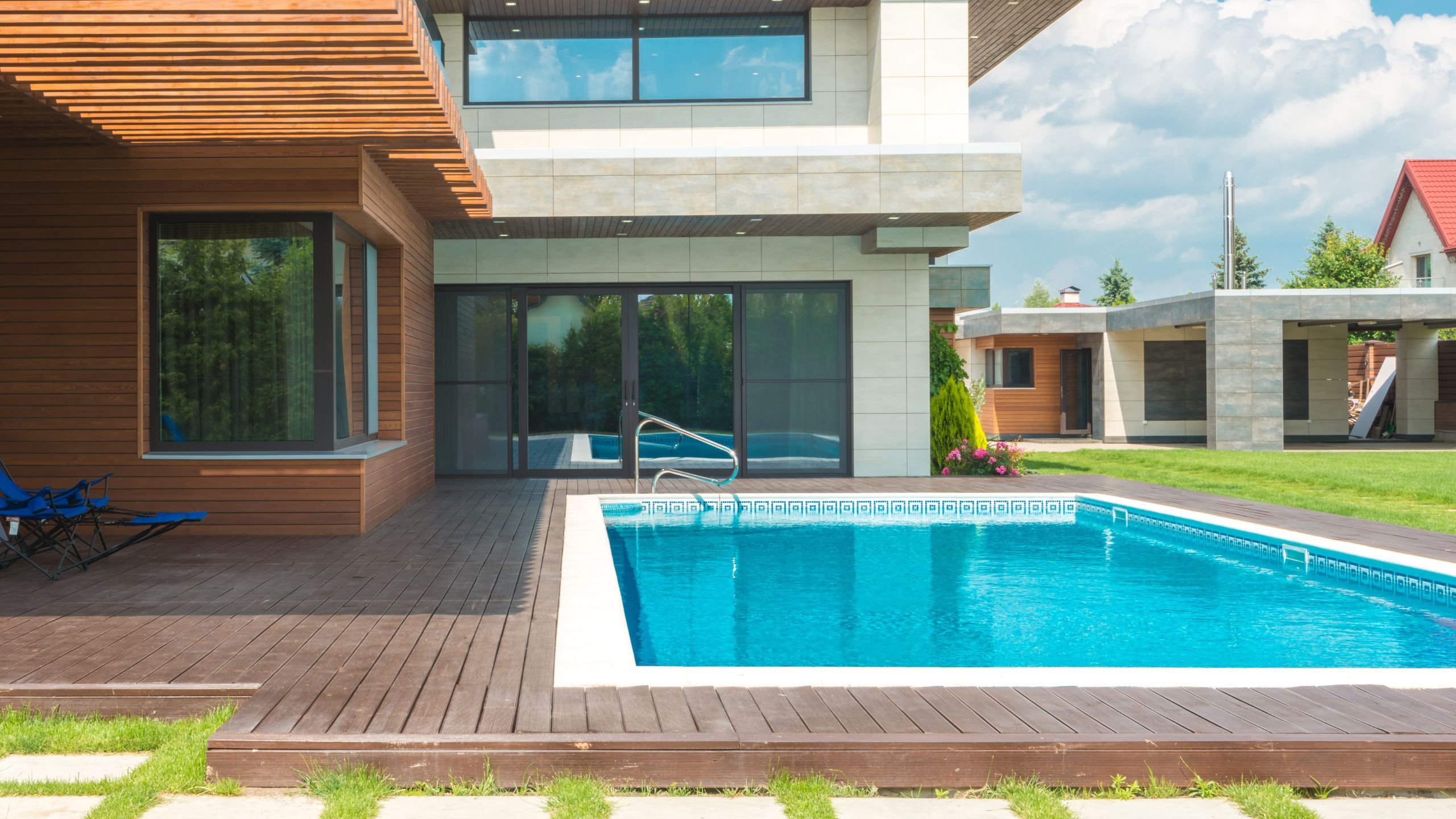
Pool Plumbing 101: Maintenance Tips for a Refreshing Summer Swim
by Jessica Jones
May 31, 2023 4 minute read
Pool Plumbing 101: Maintenance Tips for a Refreshing Summer Swim
As the temperature rises, there's nothing more inviting than a refreshing swim in your backyard pool. A well-maintained pool plumbing system is crucial for keeping your pool clean, safe, and enjoyable throughout the swimming season. Understanding the key components and addressing common issues ensures optimal water circulation and filtration. In this article, we'll delve into the essentials of pool plumbing, discuss common problems that may arise, and provide practical maintenance tips to keep your pool in pristine condition. Additionally, we'll emphasize important safety precautions for pool owners to promote a worry-free swimming experience.
Addressing Common Pool Plumbing Issues
While enjoying your pool, you may encounter common plumbing issues that can disrupt its functionality and water quality. Below are some of the most frequent problems and tips on how to address them.
Low water flow: If you notice reduced water flow from the return jets, the cause could be a clogged skimmer or filter. Start by checking and cleaning the skimmer basket, removing any debris that might be obstructing the flow. Additionally, inspect the pool filter for clogs or dirty cartridges. Cleaning or backwashing the filter as needed will promote better water circulation.
Air in the system: Air bubbles in your pool plumbing system can impede proper filtration and disrupt water flow. Inspect the pool pump lid o-ring, ensuring it is properly seated and lubricated. Check for loose fittings or damaged seals that may be causing air leaks. Tighten fittings or replace damaged components to eliminate the air from the system.
Pump priming problems: If your pool pump struggles to prime or loses prime frequently, it might indicate a suction line blockage. Check the pump strainer basket and impeller for debris, ensuring they are clear. Inspect the suction lines for obstructions or leaks. Clearing any blockages and addressing leaks will help the pump prime properly.
Plumbing leaks: Keep an eye out for reduced water levels in the pool or soggy areas around the pool equipment. These can be signs of plumbing leaks. If a leak is suspected, it's advisable to consult a professional pool plumber who can conduct a thorough inspection, locate the source of the leak, and perform necessary repairs.
Checking and Cleaning the Skimmer and Strainer Basket
The skimmer and strainer basket play a crucial role in maintaining a clean pool by removing debris before it reaches the pool's filter system. Regular inspection and cleaning of these components are essential to ensure proper water flow and prevent clogs.
Turn off the Pool Equipment: before starting any maintenance tasks, turn off the pool pump and ensure the equipment is completely powered down to avoid accidents.
Locate the Skimmer and Strainer Basket: the skimmer is usually built into the side of the pool and is connected to the pool's plumbing system. The strainer basket is located inside the skimmer and collects larger debris. Remove the skimmer lid to access the strainer basket.
Inspect the Skimmer and Strainer Basket: visually inspect the skimmer and strainer basket for any visible debris, leaves, twigs, or insects. Check for cracks or damage to the skimmer that may require repair or replacement.
Remove Debris from the Skimmer and Strainer Basket: using a pool skimmer net or your hand, carefully remove any debris from the skimmer and strainer basket. Be cautious not to push debris back into the pool. Dispose of the debris in a trash bag or compost pile.
Rinse the Skimmer Basket: if the skimmer basket is dirty, rinse it with a hose to remove any remaining debris. Gently scrub the basket with a soft brush if necessary. Avoid using harsh chemicals or abrasive materials that could damage the basket.
Reassemble and Secure: place the cleaned skimmer basket back into the skimmer, ensuring it is properly seated. Replace the skimmer lid, making sure it is tightly secured to prevent debris from entering.
Restart the Pool Equipment: once the skimmer and strainer basket are clean and securely in place, turn on the pool pump and equipment. Verify that water is flowing smoothly through the skimmer and into the pool.
Tips for Handling Debris
Wear gloves to protect your hands from potential debris, especially if you come across sharp or harmful objects. Consider using a pool skimmer net with a telescopic pole for easier reach and better control while removing debris. Dispose of debris in a responsible manner, either by placing it in a trash bag or composting natural debris. Regularly inspect and clean the skimmer and strainer basket to prevent excessive debris accumulation and potential clogs.
Identifying Common Signs of Pool Plumbing Leaks
Detecting and addressing pool plumbing leaks promptly is crucial to prevent further damage, water waste, and potential costly repairs. By being aware of the signs of leaks, pool owners can take proactive measures to mitigate the issue.
Reduced Water Level: If you notice a continuous decrease in the pool's water level despite normal evaporation, it could be a sign of a plumbing leak. Measure the water level regularly and monitor any significant changes over a few days to confirm if a leak is present.
Soggy Areas around the Pool: If you observe wet or soggy spots around the pool area, especially in the soil or grass, it could indicate a leak in the plumbing system. Leaking water may seep into the surrounding ground and create these damp areas.
Unexplained Water Loss: If you consistently need to add more water to the pool to maintain the desired level, it suggests a possible leak. Keep track of your water consumption and compare it to the expected evaporation rate. Significant discrepancies may indicate a leak.
Proactive Leak Detection: To identify leaks early, conduct a dye test by adding food coloring near suspected leak areas or plumbing fittings. Observe if the dye is drawn into the crack or gap, indicating a leak. Another method is performing a bucket test to measure the pool's water loss over a specific period, helping determine if a leak is present.
Pool Plumbing Safety Precautions for Pool Owners
Ensuring the safety of individuals using the pool is of utmost importance for pool owners. Proper precautions regarding pool plumbing can help prevent accidents, injuries, and potential hazards.
Electricity and water can be a dangerous combination. It is crucial to ensure all electrical pool equipment, such as pumps, lights, and heaters, are properly grounded to minimize the risk of electrical shock. Keep all electrical cords and outlets away from the pool area and ensure they are protected from moisture.
Precautions against suction entrapment are also important. Suction entrapment, where individuals can become trapped by the force of suction from pool drains, is a serious safety concern. By installing compliant drain covers that meet the safety standards, you can reduce the risk of entrapment. Regularly inspect and maintain these covers to ensure they are in good condition.
Proper handling and storage of pool chemicals are vital to protect the health and safety of pool users. Store pool chemicals in a cool, dry, and well-ventilated area, away from flammable materials and direct sunlight. Always wear appropriate personal protective equipment (PPE), such as gloves and goggles, when handling and mixing pool chemicals. Avoid mixing different chemicals unless directed by professionals.
Conclusion
Regular upkeep and attention to your pool's plumbing system will contribute to a refreshing and relaxing swimming experience for you, your family, and your guests. Conduct regular inspections of the pool plumbing system to identify potential safety hazards. Ensure all pool plumbing components, such as pipes, fittings, and valves, are in good condition and free from leaks. It is essential to inspect and clean skimmers, strainer baskets, and pool filters regularly to ensure optimal performance.
If you ever have any doubts or come across challenging pool plumbing safety concerns, don't hesitate to reach out to a friendly professional at Fixlers. They have the expertise and experience to provide guidance, address your concerns, and ensure that your pool remains a safe and inviting space for everyone to enjoy.
Download the Fixlers app, create your account, and complete your profile to order your first service today! Visit our home page for more info, or go to our FAQ page here.









